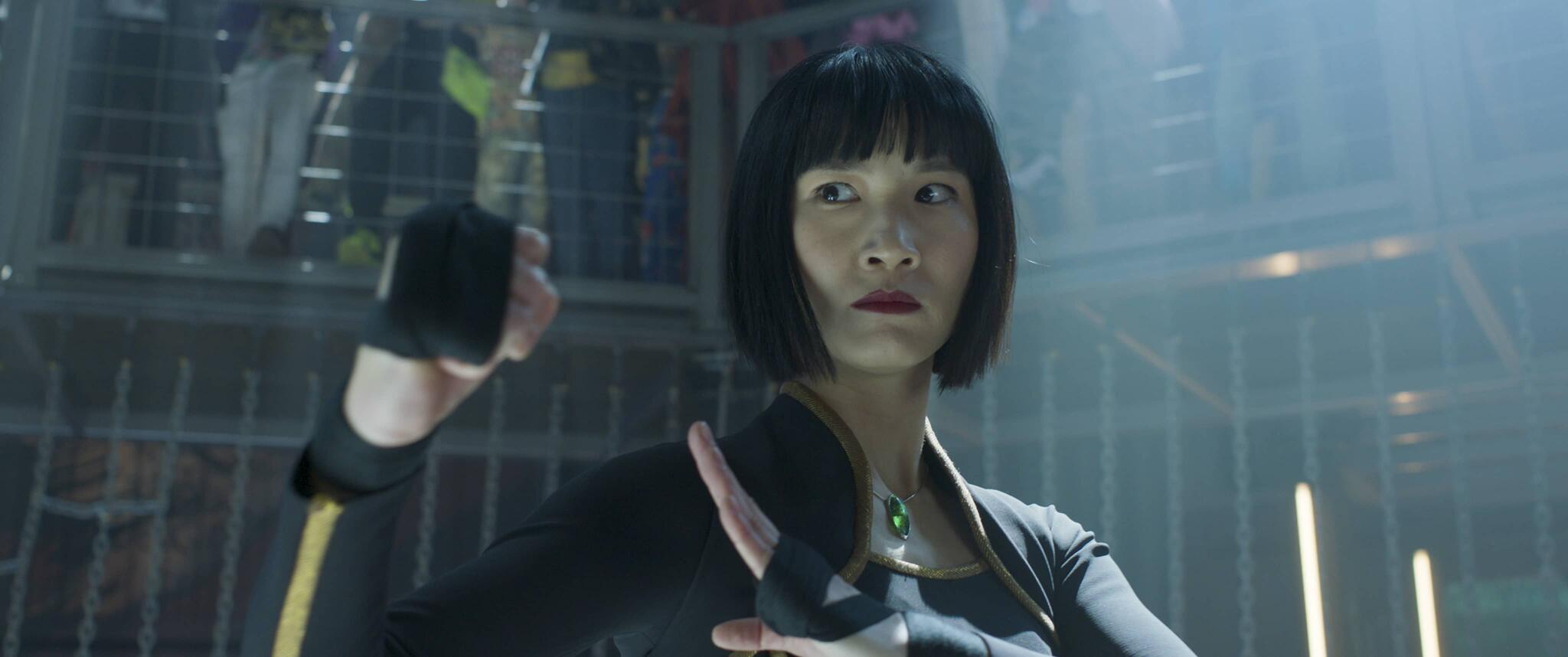Shang-Chi is an absolutely stunning and captivating movie, and it fills my heart with hope for more culturally-encompassing films. But how they portray the character of Xialing, Shang-Chi’s sister reveals there is more work to be done to represent women of color.
It had been well over a year and a half since I entered a movie theater, but I went out armed with disinfecting wipes and hand sanitizers to support the creative team of Shang-Chi and the Legend of the Ten Rings. It’s Marvel’s first all-Asian ensemble, Asian led superhero flick. But the lack of proper advertisement, inability to buy the film through streaming, and blatant disrespect by corporate heads made many Asians and allies angry.
As a (non-Asian) Latina, I know the feeling of never really seeing yourself or your community on-screen: if there is a character with an ethnic surname, they are usually met with heavy stereotypes, a white-washed face, and/or used as background. Marvel is especially notorious for the lack of representation of Black, Indigenous, and people of color, even though they have origin after origin movies about white men and their world. There are notable exceptions such as the Black Panther movie, yet the representation of marginalized groups should not rest on one movie or one group (notable to mention that Lupita Nyong’o is Kenya-Mexican, but just like with Zoe Saldaña’s character, her Afro-Latinidad is not explored nor used as part of her identity and story).

While I thoroughly enjoyed Shang-Chi, just like with Black Panther, I don’t expect it to be able to represent all Asians or the Asian diaspora. This is one great film that I want out of many for Asian and other communities of color (like the almost totally erased Asian Latinxs such as Chinese-Mexican singer Ana Gabriel).
I want the media to explore what it also means to be a woman of color, beyond what Shang-Chi does with Xialing. (Spoilers for Shang-Chi ahead!)
Xialing was the breakout character for me. Her story and presence were demanding to be seen, heard, and understood. After her mother’s death, her father would not look at her and she was removed from the narrative’s themes of revenge, forgiveness, and healing. While her brother was trained in martial arts to seek revenge for his mother’s death, she could only learn to fight by watching the boys in the day and practicing at night. While it can be (rightfully) argued that Shang-Chi should not have been given such training, it is not hard to figure out why Xialing would want to be part of the story. She faced neglect as she tried to figure out her feelings of loss. She even once tried to talk to Shang-Chi about how she remembered their mother whenever she did her fighting forms, but this stray comment is never mentioned again nor really incorporated in her arc.
Shang-Chi, though, is shown learning to accept his mother and father’s past to make his own future. Their mother had limited screen time, but we do learn she was a master of martial arts, whose almost ethereal power differed from the brute strength of their father. While at the end Shang-Chi wields the ten rings with a unique display of both his mother and father’s distinct forces, Xialing’s pain is never truly addressed. For example, she is shown to be hurt by Shang-Chi leaving her in their father’s compound when they were kids, but without focusing on her perspective, she serves only to reflect Shang-Chi’s character as imperfect and complex.

Xialing is as much the child of her mother and father as Shang-Chi is, so why not incorporate the same themes of reconciliation and growth into Xialing’s story? It could have been an interesting parallel and contrast to see how different people take on the same painful experience.
Even Xialing’s goals I would argue are limited to what her father deprived her of – a seat at his table and the inheritance of his empire. When we are working on multiple fronts to even have a voice, women of color seem to lose out on determining our own identity and journey. It’s always about the established power and success of men.
I’m not saying that Xialing doesn’t have any interest in martial arts, she even knows she’s better than the boys she spied on (and she is!). I am all for female empowerment, but I question the scope of that empowerment. Who is imagining and writing these dreams? Because right now we only have Xialing’s unprocessed pain and a final credit scene that shows she is taking over her father’s training compound (although with really badass decor and more women). There is still hope in learning more about how Xialing envisions herself and her future drawing not only from her father, but her mother as well. I just don’t want it to take years like with Black Widow. I was also excited about the perceived romantic chemistry I saw from Katy (Shang-Chi’s San Francisco friend) and Xialing, so here’s to manifesting more LGBTQ representation!
In the meantime, go watch Shang-Chi in theaters if you are able – and support more Asian stories in film!

